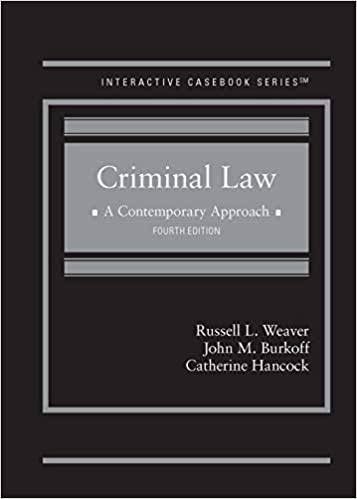Question
Part I Assume that you just obtained your dream job as a junior associate attorney at a prestigious litigation law firm in New York, New
Part I
Assume that you just obtained your "dream job" as a junior associate attorney at a prestigious litigation law firm in New York, New York. On the first day of orientation, the firm's librarian asks you to attend training on how to conduct basic research on a legal database called, Nexis Uni. The next day, one of the firm's senior partners James Varney calls you into his office and asks you to do some research for him.
Your senior partner tells you that one of our clients, a former government official, has been charged with making a false statement on his passport application. Please locate the applicable statutes including the statute that outlines the statute of limitations for making false statements on a passport application. After you locate the applicable statutes, please post a citation to the applicable statutes in the discussions and with a list of questions outlining what additional information that we need to obtain from the client to render an informed decision regarding any defenses that our client may raise.
Part II
Everyone should answer the following questions, what is the difference between a primary and a secondary source and provide an example of each type of source. Are there any legitimate reasons for using a secondary source when mandatory primary authority exists?What are the dangers of using a slip-opinion?
Step by Step Solution
There are 3 Steps involved in it
Step: 1

Get Instant Access to Expert-Tailored Solutions
See step-by-step solutions with expert insights and AI powered tools for academic success
Step: 2

Step: 3

Ace Your Homework with AI
Get the answers you need in no time with our AI-driven, step-by-step assistance
Get Started


